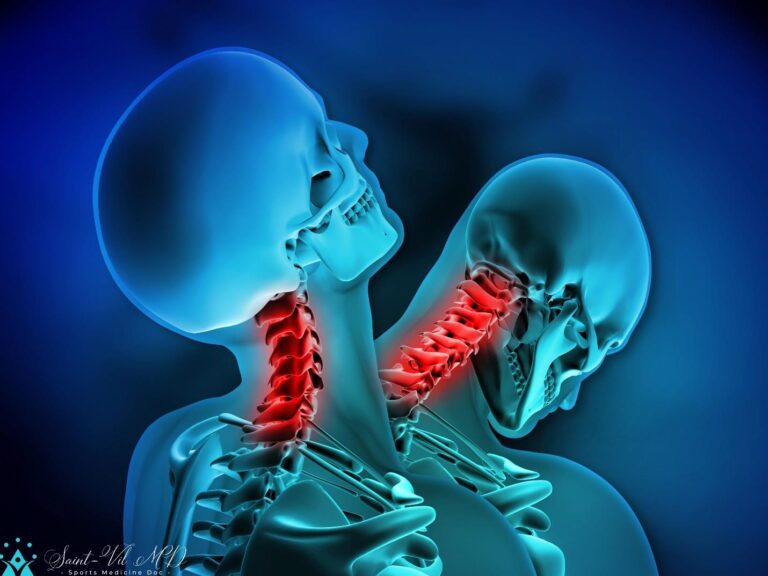
5 Weight Loss Fitness Mistakes
You’ve dieted and exercised for a week or two and decide to check your weight on the
scales. As expected, you acquire weight. Ick! You may lose so little weight that it makes no
difference. When you feel that your efforts are futile, it’s easy to give up. When you work
hard to reduce weight but don’t see results, you may feel demoralized.
Don’t quit. Your surprising dieting results may be attributable to faults you unwittingly (or
sometimes knowingly) make. You can quickly fix these faults to lose weight. Below are some weight loss blunders.
Concentrating only on cardio

Most people work out wrong. They think cardio will help them lose weight. They may run several miles, use the treadmill twice a week, and do ab workouts many times a week, yet they don’t lose as much weight as they thought. Cardio is good, but it shouldn’t be your only workout. It’s easier, but you won’t drop as much weight.
Strength training is a must for weight loss. For optimal results, combine cardio and weightlifting. Most people think weightlifting and other forms of strength exercise won’t help them lose weight. This is false. Resistance exercises burn fat, build lean muscle, and enhance metabolism. This helps shed weight faster than cardio alone. Alternating cardio and strength exercise every other day is the greatest approach to lose weight.

Variety can improve cardiac exercises. Humans tend to adhere to what works for them and ignore new methods. Some like the treadmill, some the elliptical, and others the stair climber for cardio activities. As the body becomes acclimated to repeated movements, it grows better at them and uses less energy. Repeating the same exercises on the same equipment won’t affect the body long-term.
Mix up your cardio workouts to shed more weight. You wouldn’t lift the same weights for months, so don’t repeat cardio. Alternating cardio and weight training. Strength training beats cardio by now. If you practice cardio and strength training one after the other, you may not have enough energy for the last activity. If you do cardio first, then weights, you won’t have the energy for strength training, and vice versa. Alternate cardio and weightlifting for optimal results. You’ll give each set your all, burning more calories.
Performing low-intensity exercises

In the long run, a little workout may have minimal influence on your body. Zumba, running, and light weightlifting won’t burn enough fat to help you lose weight. If you want actual bodily changes, undertake rigorous exercises. If you can execute a workout without much effort, it’s probably not helping you lose weight.
Exercise intensity mistakes include:
Jogging. Jogging is a slow, easy way to stay fit. It doesn’t aid weight loss. Most folks have
the same running routine: same distance, same time, same route. Once your body becomes used to your habit, you don’t lose as much weight jogging. One 30-minute jog burns fewer calories than an average healthy dinner, so you’ll eat more than you burn. Instead of jogging, try road or treadmill running.
Dancing workouts. They’re a fun way to lose weight and don’t strain your muscles. In
actuality, workout dance lessons don’t burn enough fat to help you lose weight.
Cycling. Most exercise bike users read or watch TV. This wastes their time because they
won’t put in much effort unless they’re doing HIIT. If you want to lose weight, avoid the
exercise bike, as the calorie burn is modest unless you conduct intensive pedaling.
Light weightlifting. Correctly using weight machines helps lose weight. People lift little and hope for the best. This never works, and they’re upset when they don’t lose weight. As a beginning, you may lift low weights, but you need increase them to lose weight.
No diversity in your workouts
The same exercise program for months won’t help you lose weight. What helped you drop 5 pounds initially won’t help you lose 10 pounds afterwards. Your body will adapt to the exercises, halting your progress. Light exercises may seem challenging at first, but your body will get acclimated to them. To avoid complacency, add more weights or cardio to your workout program. Once your body is habituated to a program, it requires less energy to perform it, so you burn less fat while exercising. Vary your exercises to prevent this. Mix up the intensity and duration of your workouts every few days and undertake a new resistance and aerobic regimen every month. Your training plan should improve as
your fitness does. Make sure your workout gets harder over time.
Try weight lifting, aerobics, or interval training in addition to what you’ve been doing. Change your training routine and try new workouts. Different challenges produce better results than repeating the same workout. A single, unchanging habit will dull you, leading to mental and physical complacency. Do tough exercises to refresh your body and mind. Doing the same workout for too long might be dull and ineffective, so try varied exercises and routines.
Lack of consistency in your exercise program
Working out once or twice a week can enhance cardiovascular health, but not weight loss.
Consistent exercise will help you lose weight. This means you should exercise regularly, even if you don’t want to. After a few days, some people lose interest in exercising out to reduce weight. Some quit for days, weeks, or months, then start again, while others never return. Exercise is difficult, especially for beginners. Sore muscles may make you decide never to exercise again, but they improve over time.
As your body adapts to the activities, soreness decreases and workouts get easier.
Weight-loss exercise requires consistency. Exercising 4–6 days a week with a rest day in between is recommended for maximum effects. Too many rest days will negate your exercise work. When you want to quit, keep going. After you lose weight and get fit, your body will appreciate you.

Make a weekly or monthly workout regimen and stick to it to exercise regularly. Include rest days while planning workouts. To keep things interesting, don’t repeat the same task.
Set realistic monthly goals, like as jogging a particular number of kilometers or lifting a specific amount of weights, and reward yourself if you achieve them. Instead of rewarding yourself with food, get a manicure or new gym clothes. If you miss a workout or don’t accomplish your goal, you can punish yourself by not buying a new wardrobe. This will force you to establish a consistent training regimen without weak excuses. Setting goals helps you keep your workout program and motivates you to accomplish and surpass them.
Not getting enough sleep

Sleep deprivation affects your health and weight. Little sleep means you’ll be fatigued and
won’t have time or energy for the exercise. When you’re tired from lack of sleep and go to
the gym to workout, you won’t have enough energy. Even if you try some, you may not
finish them owing to weariness. Exhaustion saps your energy, affecting your gym time.
Sleep deprivation can affect your eating, which hinders weight loss. If you didn’t get enough sleep, you’ll probably need coffee and pastries to keep alert. After a long day, you may be too weary to go to the gym and choose takeout over cooking. Sleep deprivation promotes cortisol production, which stimulates appetite. You crave comfort food to eat. Sleep deprivation reduces your chances of consuming nutritious foods like salads, thwarting your weight-loss goals. All of these increase body weight instead of reducing it, and the cycle may continue if not stopped. You may have fought tiredness with caffeine and comfort food, yet you gain weight. People who sleep six to eight hours a day are more likely to lose weight than those who sleep less. You can avoid sleep deprivation by doing the following:
Caffeine in the afternoon can disrupt sleep. Caffeine in the afternoon keeps you in
lighter sleep stages, which cause poor sleep. Afternoon drinks should be decaf.
Bedtime and waketime are consistent. A sleep schedule helps you sleep when you
should.
Power naps are vital, but too many may make you less drowsy at night.
Exercise close to bedtime may energize you and make sleep difficult. Give your body
3-4 hours to chill down before sleeping.
Avoid using phones, TVs, laptops, or other screen-based devices before bed since the
light may keep you awake.















